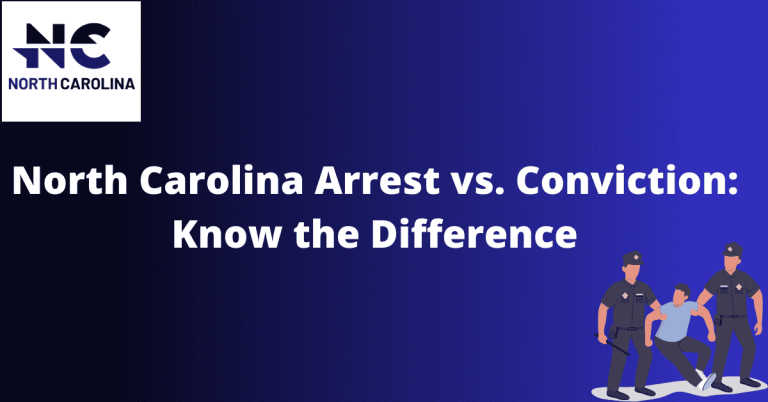North Carolina DUI Arrests and Consequences: What You Should Know

Driving under the influence (DUI) in North Carolina is a serious offence with severe legal implications. This comprehensive guide will provide you with in-depth insights into the world of DUI arrests in North Carolina, helping you navigate the legal system effectively and understand the consequences of such charges. Whether you’re facing a DUI arrest or simply want to be informed, read on to explore the intricacies of North Carolina DUI laws and their repercussions.
Understanding North Carolina DUI Laws
In North Carolina, DUI laws are strict and clearly defined. To begin with, it’s crucial to be aware of the legal limits for Blood Alcohol Concentration (BAC). North Carolina follows a tiered system with different BAC limits for various categories of drivers. Understanding these limits and their implications is essential.
DUI offences in North Carolina encompass a range of situations, from standard DUI to aggravated DUI, each with its own set of penalties. Additionally, the state enforces implied consent laws, which means that by obtaining a driver’s license, you have already given your consent to submit to chemical testing when suspected of DUI.
In some cases, DUI charges can escalate to felony offences, leading to even more severe consequences. Understanding the nuances of North Carolina’s DUI laws is the first step in comprehending the potential outcomes of a DUI arrest.
The DUI Arrest Process
A North Carolina DUI arrest typically begins with a traffic stop, during which law enforcement officers may conduct field sobriety tests to determine your level of impairment. These tests are designed to assess your coordination and mental clarity.
If the officer has reasonable suspicion to believe you are impaired, you may be asked to take a breathalyzer test or submit to a blood test. You also have the right to remain silent, and anything you say during this process can be used against you.
Following an arrest, you will be taken into custody, processed, and booked. Understanding each step of the DUI arrest process is vital for those facing charges.
Immediate Consequences of a DUI Arrest
The immediate consequences of a DUI arrest can be overwhelming. One of the most immediate and impactful consequences is the suspension of your driver’s license. Depending on the circumstances, you may need to post bail or bond to secure your release.
Additionally, a DUI arrest often leads to mandatory alcohol assessments and, in some cases, the installation of an ignition interlock device on your vehicle. These consequences can have a significant impact on your daily life.
Navigating the Legal System
Hiring an experienced DUI attorney is a crucial step in navigating the legal system after a DUI arrest. Your attorney will guide you through court proceedings, help you decide between plea bargaining and going to trial, and work to minimize potential sentencing and penalties.
Understanding the legal process and your rights is essential for building a solid defence and achieving the best possible outcome in your case.
Long-Term Impact and Rehabilitation
A DUI conviction in North Carolina can have long-lasting effects on your life. It can result in a permanent criminal record, increased insurance premiums, and difficulties in finding employment or pursuing education. Engaging in alcohol education programs and seeking rehabilitation may be necessary to address underlying issues and mitigate the long-term impact of a DUI.
Defences and Legal Strategies
There are various defences and legal strategies that can be employed in DUI cases. These include challenging the evidence presented by the prosecution, arguing a lack of probable cause for the traffic stop, addressing medical conditions that may affect BAC readings, and exploring plea options.
By understanding these strategies, you can work with your attorney to build a robust defence tailored to your specific situation.
FAQS
Explore our comprehensive Frequently Asked Questions (FAQ) section to find answers to common queries about NC Arrests.
Can I refuse a breathalyzer test in North Carolina during a DUI stop?
Yes, you can refuse a breathalyzer test, but it may result in an immediate license suspension under North Carolina’s implied consent laws. Consulting with an attorney is essential to understand the potential consequences of refusal.
How long does a DUI stay on your record in North Carolina?
A DUI conviction can stay on your record for several years, potentially impacting your life for an extended period. The specific rules and consequences vary depending on your circumstances and prior convictions, so it’s essential to seek legal advice.
Is it possible to expunge a DUI conviction in North Carolina?
North Carolina law generally does not allow for the expungement of DUI convictions. However, consulting with an attorney can help you explore any available legal options and understand the specific circumstances that may affect your case.






